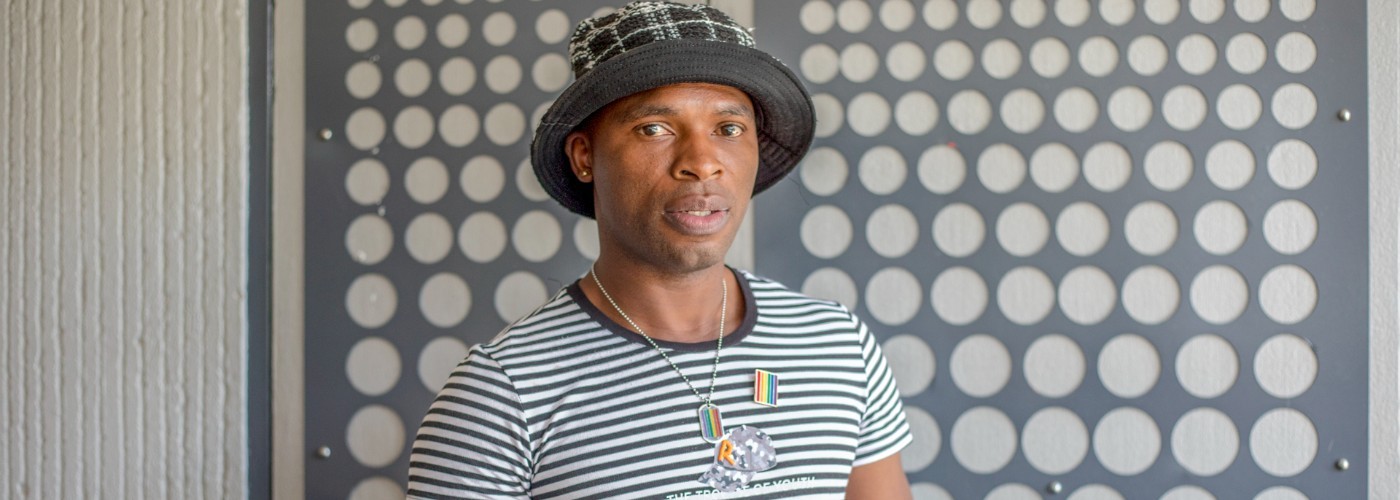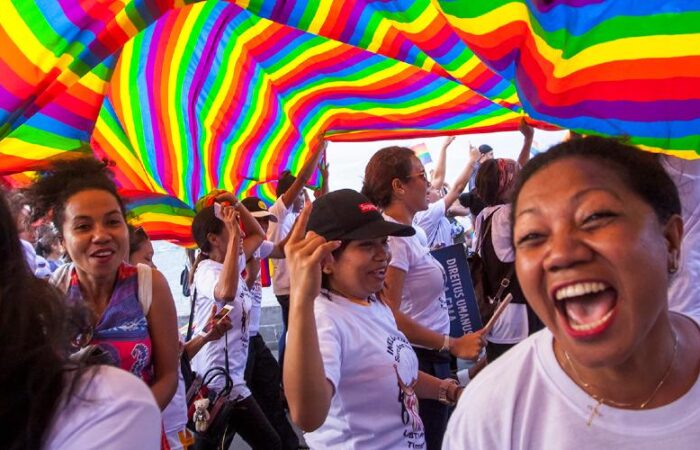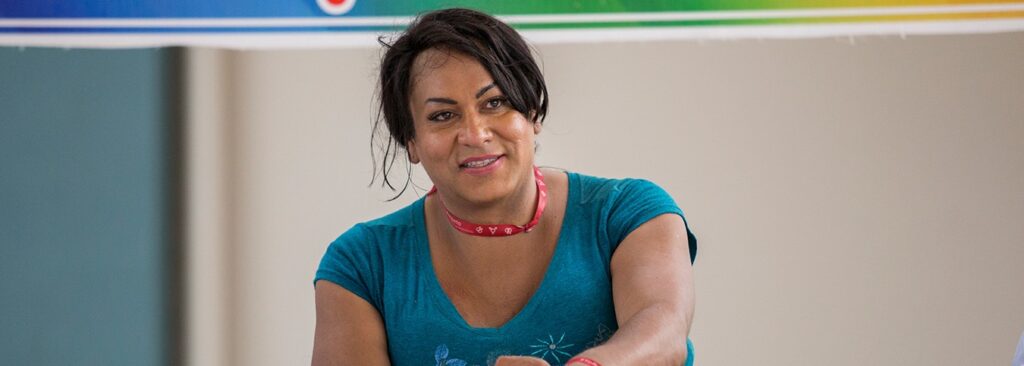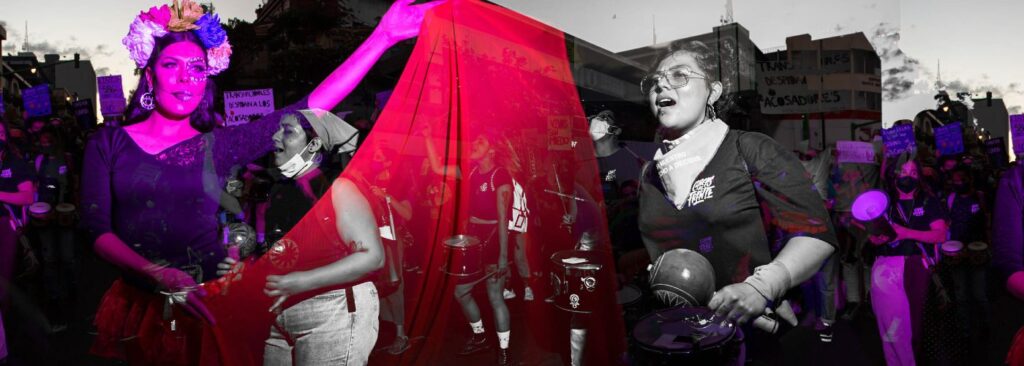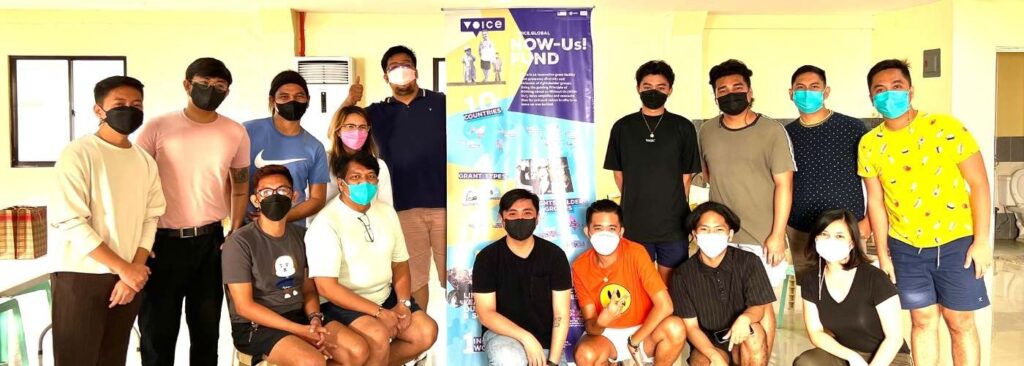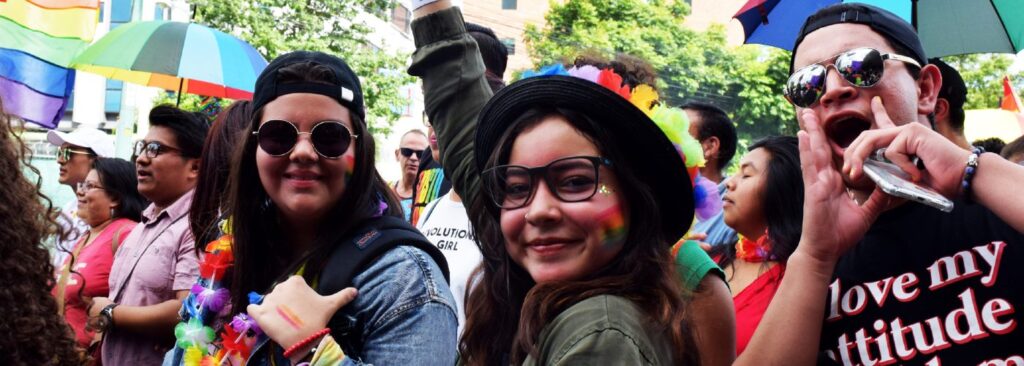Five questions for human rights activist Teddy Munyimani
Since 2021, our Free to be Me program has been supporting LGBTIQ+ organizations and activists who advocate for their human and socio-economic rights. We invite them into safe spaces where they can organize, called “Communities of Action” (CoA). Here, people belonging to all parts of the LGBTIQ+ rainbow can meet, become stronger, and jointly develop and implement plans to advocate for their rights.
We want Zimbabweans to fight for us instead of against us.
Teddy Munyimani is a human rights activist and Free to be Me Community of Action facilitator in Zimbabwe. We sat down for a chat to get a behind-the-scenes look at his activism and his role in the program.
How and when did you become active as an activist?
“It was more out of necessity than a conscious decision. Zimbabwe is a very homophobic country, and I grew up in a family deeply rooted in Christianity. I wanted to belong to the church, and for years I resisted my feelings for men. But when the church found out about me, the priest said my sexual orientation was demonic and expelled me. My family also kicked me out when they heard.
I got help from GALZ [an organization in Zimbabwe that works for LGBTIQ+ people – ed.]. They helped me find a place to live and paid for the rest of my studies. After that I started working as an activist, hoping that the next generation wouldn’t have to go through what I did.”
You are a Community of Action Facilitator in Hivos’ Free to be Me program. What does that entail?
“I’ve been an activist since 2013, but with Hivos’ support I’ve improved my leadership skills, among other things. As a Community of Action facilitator, I bring seasoned and inexperienced LGBTIQ+ activists from different organizations together so we can learn from each other.”
-
Gender Equality, Diversity and Inclusion
How we support rightsholders in their efforts to claim the power, agency, and leadership necessary to drive change.
How do you work?
“Our work is multifaceted. For example, we train LGBTIQ+ activists to write better proposals to access funds faster and more easily. We also try – including through the media – to positively influence public opinion by dispelling misunderstandings about our community. We want Zimbabweans to fight for us instead of against us.
We focus a lot on the socio-economic position of LGBTIQ+ persons. Many Zimbabweans live below the poverty line – we’re currently battling an inflation rate of over 500 percent, and the local currency is virtually worthless. LGBTIQ+ people are particularly affected by this because many of them have no work at all.
Hivos also pays lots of attention to the mental health of the activists, for example by asking them to take a step back now and then to reflect on what their work does to them.”
What challenges do you encounter?
“Homosexual acts are forbidden, and same-sex marriage is unthinkable. Many Zimbabweans take this as a license to mistreat LGBTIQ+ people. In addition, a bill is currently being discussed in Parliament that would restrict the freedoms of organizations like GALZ and those supported by Free to be Me. This is meant to silence us. So we’re working with other human rights organizations to do our best to prevent this law from being passed.”
What do you hope to achieve with your work?
“I hope to see people’s perception of the LGBTIQ+ population start to change in a few years and the media stop spreading misleading information. I hope that they increasingly behave as an ally, rather than an enemy, of our community.”
Free to be Me works in 14 countries in Africa, the Middle East and Asia. The program is funded by the Dutch Ministry of Foreign Affairs under the ‘Power of Voices’ subsidy framework to strengthen civil society. Consortium partners are: Positive Vibes, ILGA World, and Hivos as lead party. Global Interfaith Network (GIN), Workplace Pride and Sogicampaigns are our technical partners.

